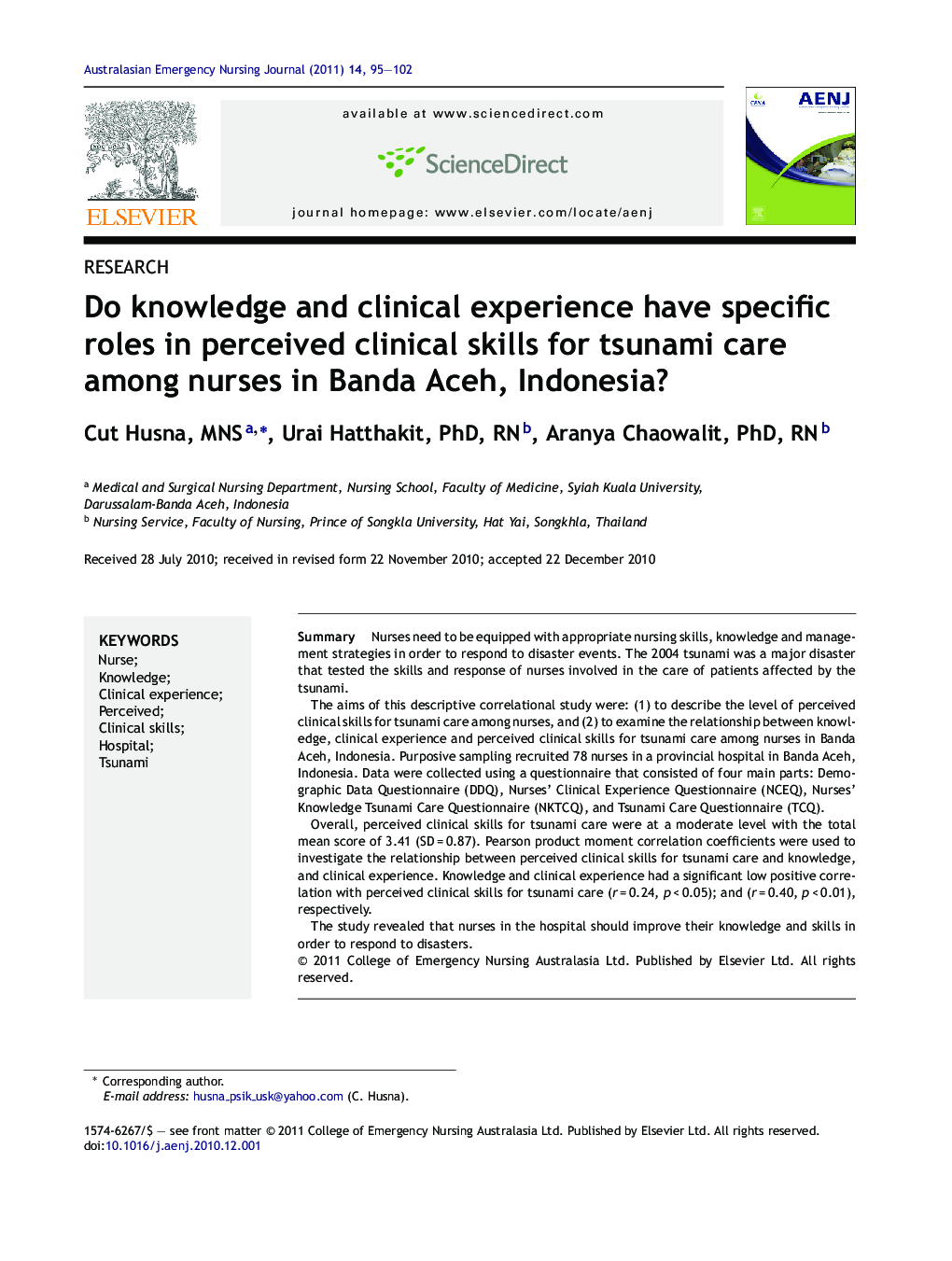| Article ID | Journal | Published Year | Pages | File Type |
|---|---|---|---|---|
| 2606541 | Australasian Emergency Nursing Journal | 2011 | 8 Pages |
SummaryNurses need to be equipped with appropriate nursing skills, knowledge and management strategies in order to respond to disaster events. The 2004 tsunami was a major disaster that tested the skills and response of nurses involved in the care of patients affected by the tsunami.The aims of this descriptive correlational study were: (1) to describe the level of perceived clinical skills for tsunami care among nurses, and (2) to examine the relationship between knowledge, clinical experience and perceived clinical skills for tsunami care among nurses in Banda Aceh, Indonesia. Purposive sampling recruited 78 nurses in a provincial hospital in Banda Aceh, Indonesia. Data were collected using a questionnaire that consisted of four main parts: Demographic Data Questionnaire (DDQ), Nurses’ Clinical Experience Questionnaire (NCEQ), Nurses’ Knowledge Tsunami Care Questionnaire (NKTCQ), and Tsunami Care Questionnaire (TCQ).Overall, perceived clinical skills for tsunami care were at a moderate level with the total mean score of 3.41 (SD = 0.87). Pearson product moment correlation coefficients were used to investigate the relationship between perceived clinical skills for tsunami care and knowledge, and clinical experience. Knowledge and clinical experience had a significant low positive correlation with perceived clinical skills for tsunami care (r = 0.24, p < 0.05); and (r = 0.40, p < 0.01), respectively.The study revealed that nurses in the hospital should improve their knowledge and skills in order to respond to disasters.
